
Episodes

Friday Nov 22, 2019
What can young gamers do to counter late payments in the e-sports industry?
Friday Nov 22, 2019
Friday Nov 22, 2019
E-sports, a rising industry in which young people sit on chairs and play games against one another, is an industry that will hit US$1 billion in revenue this year. But it is populated by tournament organisers who do not pay their freelancers on time.
RIABU’s Mark Laudi interviews Simon Littlewood on his experience of having a son who plays in an e-sports team and the considerations for any e-sports player when chasing payments.
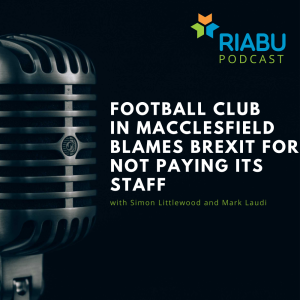
Wednesday Nov 20, 2019
Football club in Macclesfield blames Brexit for not paying its staff
Wednesday Nov 20, 2019
Wednesday Nov 20, 2019
This is the first time we’ve heard of this reason – a lower league football club (fourth tier) in England has said it is unable to pay its staff and players because it was still waiting for "international payments" and said Brexit was having an impact on its finances.
Even though Brexit still hasn’t happened.
RIABU’s Simon Littlewood and Mark Laudi discuss how uncertainty from Brexit can cause massive disruptions to the supply chains of businesses, even before the United Kingdom leaves the European Union, or if it does at all.
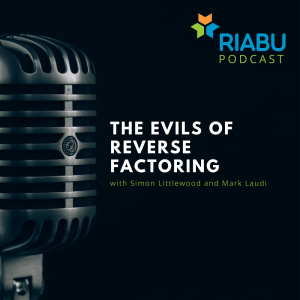
Monday Nov 18, 2019
The Evils of Reverse Factoring
Monday Nov 18, 2019
Monday Nov 18, 2019
We are exploring reverse factoring in this week’s podcast.
Reverse factoring involves the customer extending credit to the supplier. So the customer pays up straight away, minus a certain margin. Although it is one way for SMEs to get their customers to pay on time, it asks the question of whether the smaller company should even enter a relationship with such an imbalance of power.
RIABU’s Simon Littlewood and Mark Laudi talk about why some companies agree to accept a discount for on-time payment, and how to avoid giving discounts in the future.
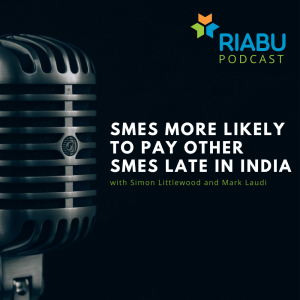
Friday Nov 15, 2019
SMEs more likely to pay other SMEs late in India
Friday Nov 15, 2019
Friday Nov 15, 2019
SMEs in India take longer to pay, and they take longer to get paid. And SMEs are borrowing to pay for late payments. And on top of that they have to pay GST for any transactions. This cycle of bad payments is creating a lot of stress on companies.
RIABU’s Simon Littlewood and Mark Laudi talk about whether getting larger companies as customers is the better way to break out of this vicious cycle. But can they even choose their customers? Is the 45-day rule even effective, and do companies even invoke the law when relationships are at stake? Listen to find out how you can get a free coffee from Simon Littlewood!

Thursday Nov 14, 2019
Singapore Fintech Festival 2019 Round-Up
Thursday Nov 14, 2019
Thursday Nov 14, 2019
RIABU went to this year’s Singapore Fintech Festival at Singapore Expo, and we found a lot of platforms that want to lend money to SMEs according to their algorithms.
But none has promised to help SMEs get paid faster. And we know most of the SMEs that need the money will still not be able to make the credit score of these fintech lenders.
RIABU’s Simon Littlewood and Mark Laudi talk about why the human touch is still important in this age of AI and automation.

Friday Nov 01, 2019
Know Your Customer, and nowadays, your customer’s customer, too
Friday Nov 01, 2019
Friday Nov 01, 2019
KYC, or Know Your Customer, is a process businesses go through to verify the identity of their clients.
This can be a serious matter as companies that do not do their due diligence and get to the bottom of their customers’ dealings run the risk of being culpable in court if they are found to be involved in money laundering or terrorist financing.
Now, as if it is not complicated enough, banks, insurers and financial institutions are demanding that their companies provide information on their customers, and their customer’s customers, thereby extending the acronym to KYCC (Know Your Customer’s Customer).
RIABU’s Mark Laudi and Simon Littlewood discuss whether businesses are really heeding the call to do more due diligence on their customers.

Wednesday Oct 30, 2019
What can you do if you’re suffering as an SME in Hong Kong?
Wednesday Oct 30, 2019
Wednesday Oct 30, 2019
The protests in Hong Kong, which have been going on for almost five months, are taking a toll on the city’s economy and local businesses. According to the government, retail sales in August fell 23% from a year earlier and were the worst on record.
RIABU’s Simon Littlewood and Mark Laudi talk about what SMEs that are suffering in Hong Kong’s economic climate can do to reduce their risk in such a tough situation where their customers are likely struggling as much as them.
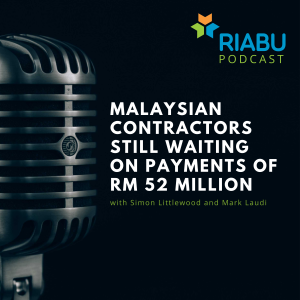
Friday Oct 25, 2019
Malaysian contractors still waiting on payments of RM52 million
Friday Oct 25, 2019
Friday Oct 25, 2019
About 920 Malaysian contractors are missing payments of around RM 52 million. And politician Datuk Seri Dr Wee Ka Siong has questioned why there are delays in payments made to these contractors who built houses as part of the government’s RMR1M project.
RIABU’s Simon Littlewood and Mark Laudi talk about how the flow of money to the suppliers can be changed, especially in government payments.
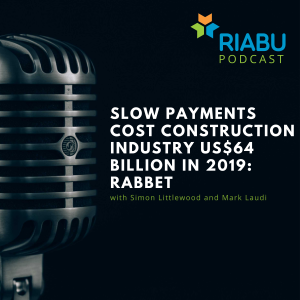
Wednesday Oct 23, 2019
Slow payments cost construction industry US$64 billion in 2019: Rabbet
Wednesday Oct 23, 2019
Wednesday Oct 23, 2019
The construction industry in the US is suffering from 51 days sales outstanding, the longest of any industry in the country, according to a report by construction finance software platform Rabbet.
RIABU’s Simon Littlewood and Mark Laudi talk about the nature of payments in the construction industry and how subcontractors can manage relationships with their suppliers and remove obstacles so they can get paid on time.
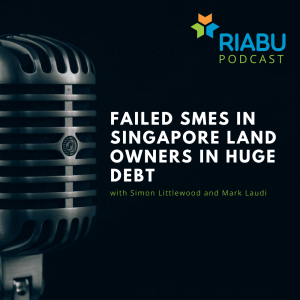
Monday Oct 21, 2019
Things We Learned From The Global SME Finance Forum 2019
Monday Oct 21, 2019
Monday Oct 21, 2019
RIABU’s Simon Littlewood and Mark Laudi talk about what we learned at the Global SME Finance Forum in Amsterdam.
Our wide-ranging discussion includes reverse factoring, how banks must now do more than just lend money to SMEs, and various ways to extend lending to SMEs. We also asked the question of whether women get their invoices paid faster.
